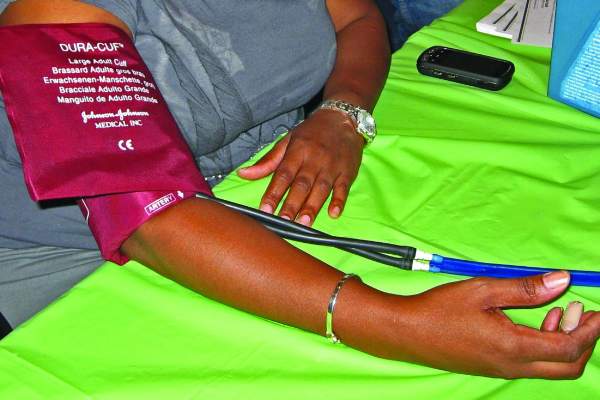FROM JAMA NEUROLOGY
Tighter blood pressure control is not linked to cognitive decline among older adults and may instead be associated with preservation of cognitive function, according to a new analysis.
Further, the cognitive benefits of tighter control are even more pronounced among black patients.
For their research, Ihab Hajjar, MD, of the Emory School of Medicine in Atlanta and colleagues looked at data from 1,657 cognitively intact older hypertension patients with a mean age of 74 years, of whom 47% were black (784). These patients were drawn from the Health Aging and Body Composition (Health ABC) study, a prospective, community-based study of some 3,000 cognitively intact people aged 70-79 in two cities in Tennessee and in Pennsylvania, who were followed for up to 10 years. Patients in the study had a mean 2.5 follow-up visits, with 75% retention of the cohort at 10 years. Follow-up outcomes included cognitive decline from baseline, which was measured using two tools: the modified Mini-Mental State Examination ( 3MSE ), and the Digit Symbol Substitution Test ( DSST ). Blood pressure was also captured at each study visit.
Dr. Hajjar and colleagues report that subjects whose systolic blood pressure (SBP) was maintained at 150 mm Hg or higher during the study period saw significantly greater cognitive decline over 10 years, compared with those treated to levels of 120 mm Hg or lower (JAMA Neurol. 2017 Aug 21; doi: 10.1001/jamaneurol.2017.1863 ). Furthermore, the investigators noted a differential decrease by blood pressure levels for both cognitive scoring systems, with the greatest decline seen in the group with SBP of 150 mm/Hg or higher and the lowest decrease in the group with 120 mm/Hg or lower (P less than .001 for both).
Black patients saw a greater difference, compared with white patients, between the higher and lower SBP levels in the decrease in cognition. Adjusted differences between the group with 150 mm Hg or higher and those with 120 mm Hg or lower were –0.05 in white patients and –0.08 in black patients for the 3MSE test (P = .03), and –0.07 in white patients and –0.13 in black patients for the DSST (P = .05).
“Almost all guidelines have recommended that target blood pressures be similar for black and white patients,” the investigators wrote in their analysis, adding that “future recommendations for the management of hypertension and cognitive outcomes need to take this racial disparity into consideration.”
The study was funded by the National Institutes on Health and National Institute on Aging. Dr. Hajjar and his colleagues disclosed no conflicts of interest.





